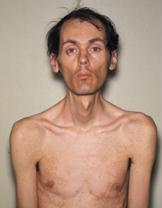Myotonia - diagnosis and treatment

Myotonia is a neuromuscular circumstance in which the muscles contract properly but do not relax, causing temporary stiffness. Movement may be slow and difficult until the muscles warm up, after which they seem to function more smoothly. Myotonia may be a symptom, such as with some forms of MUSCULAR DYSTROPHY, or a congenital condition. Myotonia congenita is a rare form of myotonia that occurs as a result of GENE mutations. Some forms of myotonia are progressive though most are not. Myotonia is a disorder of the ion channels in the MUSCLE cells (channelopathy), most often the chloride, sodium, or potassium channels. The ion channels regulate the ion exchange that must occur for a cell to “fire,” which in the case of muscle cells is to contract and relax.
Diagnosis of Myotonia and Treatment
The diagnosis of myotonia is primarily clinical, based on the doctor’s observance of the person’s movement and muscle function. Characteristic alterations in the electromyogram (EMG) generally can confirm the diagnosis. Treatment with antiseizure medications and drugs that affect the ion channels often improve symptoms and muscle function. Myotonia resulting from another disorder often improves when the underlying condition improves. Though myotonia is a lifelong circumstance, most people who have myotonia are able to enjoy fairly normal lifestyles with appropriate medication therapy.
See also CELL STRUCTURE AND FUNCTION; GENETIC DISORDERS; INHERITANCE PATTERN; MUTATION; MYOPATHY; NEURON.